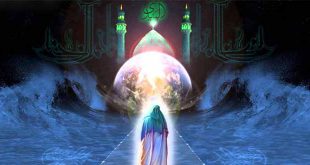This international conference aims to progress the field of Fatimid studies by examining their political, cultural, artistic, social, economic and intellectual interactions.
Historical documentation and archaeological material have revealed that the Fatimids once presided over a diverse, multicultural state composed of Muslims, Christians, Jews and other religious traditions, as well as from a wide range of ethnic backgrounds. This diversity contributed to the formation of a vibrant environment that stimulated intercultural contact and exchange across the Mediterranean, the Middle East, and the Indian Ocean. These encounters would also profoundly influence Fatimid history, material culture, politics, and religion, among other areas.
The current trend in scholarship has been to discern interdependence among the peoples and cultures of the past in order to gain a better understanding of the context of these connections. This was reflected in scholarship at the 1998 ground-breaking conference L’Égypte fatimide: son art et son histoire held in Paris, where the focus was primarily on Fatimid artistic and historical associations in Egypt, rather than the entire span of Fatimid rule, and spheres of influence.
This international conference aims to progress the field of Fatimid studies by examining their political, cultural, artistic, social, economic and intellectual interactions. The conference encourages participation from established, as well as early career, scholars specialising in the Fatimid lands of Bilād al-Shām, Egypt, Ifrīqiya, Sicily, and other areas across the Mediterranean, the Middle East, and the Indian Ocean. The objective is to promote a broader and deeper understanding of how the cosmopolitan Fatimid milieu contributed to intercultural dialogue as well as to imperial contestations, and therefore impacted the history, material culture, politics, and religions of the region through these nine panels:
1) Fatimid Historiography and Mediaeval Narratives
2) Fatimid Encounters with Contemporary Cultures
3) Fatimid Da’wa and Dā‘ī’s – Part 1
4) Fatimid Da’wa and Dā‘ī’s – Part 2
5) Fatimid Decorative Arts and Archaeological Materials – Part 1
6) Fatimid Decorative Arts and Archaeological Materials – Part 2
7) The Fatimid State and Statecraft
8) Fatimid Architecture and the Ceremonial
9) The Fatimid Legacy
The participants include: Olly Akkerman, Ali Alibhai, Miriam Alí-de-Unzaga, Omar Alí-de-Unzaga, Hasan al-Khoee, Khalil Andani, Dina Bakhoum, Mathew Barber, Daniel Beben, Doris Behrens-Abouseif, Gregory Bilotto, Fozia Bora, Anna Contadini, Delia Cortese, Farhad Daftary, Maria de Cillis, Steven Gertz, Valérie Gonzalez, Shiraz Hajiani, Sumaiya Hamdani, Shainool Jiwa, Verena Klemm, Ayala Lester, Yaacov Lev, Anna McSweeney, Bernard O’Kane, Simon O’Meara, Marcus Pilz, Daryoush Mohammad Poor, Stéphane Pradines, Jennifer Pruitt, Aslisho Qurboniev, Yossef Rapoport, Marina Rustow, Paula Sanders, Ayman Fouad Sayyid, Avinoam Shalem, Fahmida Suleman, Yasser Tabbaa, Jamel Velji, Shafique Virani, Paul Walker, Gregory Williams.
Prospective publication: Fatimid Cosmopolitanism: History, Material Culture, Politics and Religion, Ed. F. Daftary, S. Jiwa & G. Bilotto. Bloomsbury Publishing, in association with The Institute of Ismaili Studies.
Important Data
Date: 6th December 2021 to 9th December 2021
Convenor: Dr Gregory Bilotto.
Venue: Online via Zoom. Register to attend.
Subscribe to the IIS monthly academic newsletter for conference alerts.
Cover Image: Plaque with Figural Scene, 11th-12th century (Fatimid), ivory (elephant tusk). Image courtesy of the Walters Art Museum, Baltimore. Accession no: 71.562, used under a CC BY 2.0 license.
Please note that the lecture will be recorded and used for promotional and marketing purposes. A version of the recording may appear on the IIS website.
Time
Dec 6, 2021 12:00 PM
Dec 7, 2021 12:00 PM
Dec 8, 2021 12:00 PM
Dec 9, 2021 12:00 PM
 Ijtihad Network Being Wise and Faithful Muslim in the Contemporary World
Ijtihad Network Being Wise and Faithful Muslim in the Contemporary World
